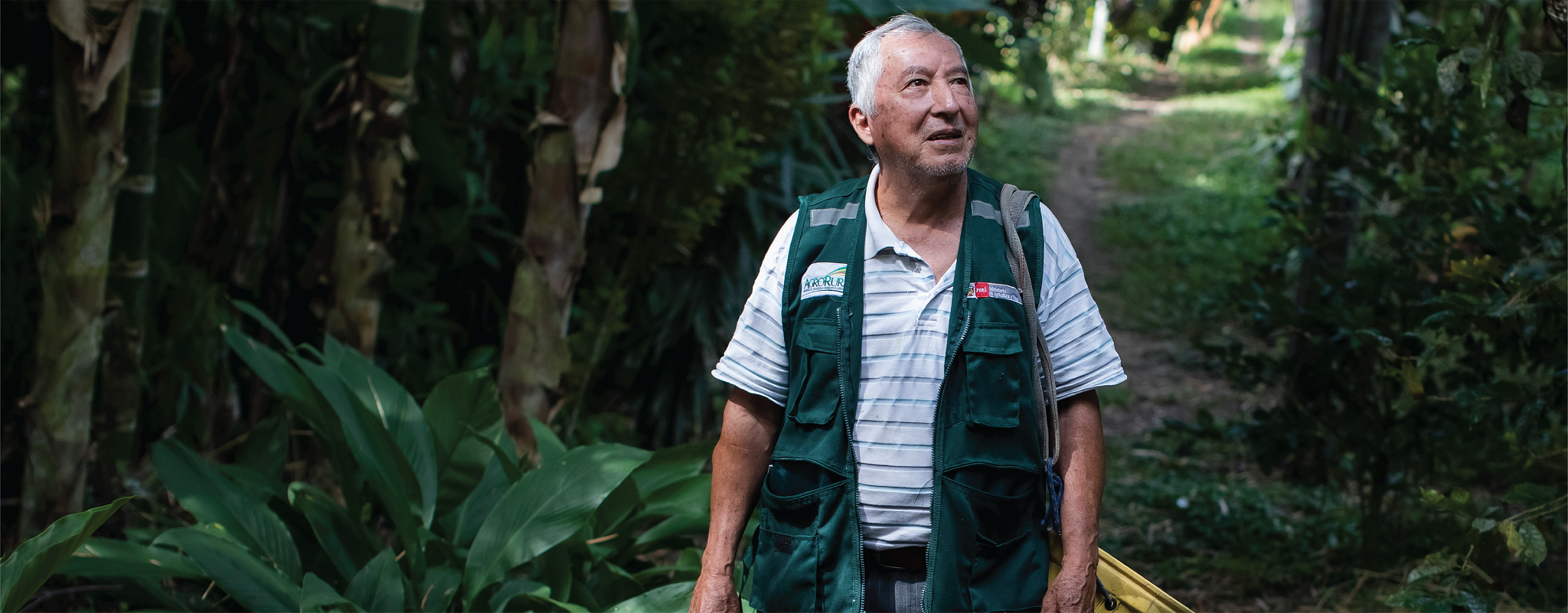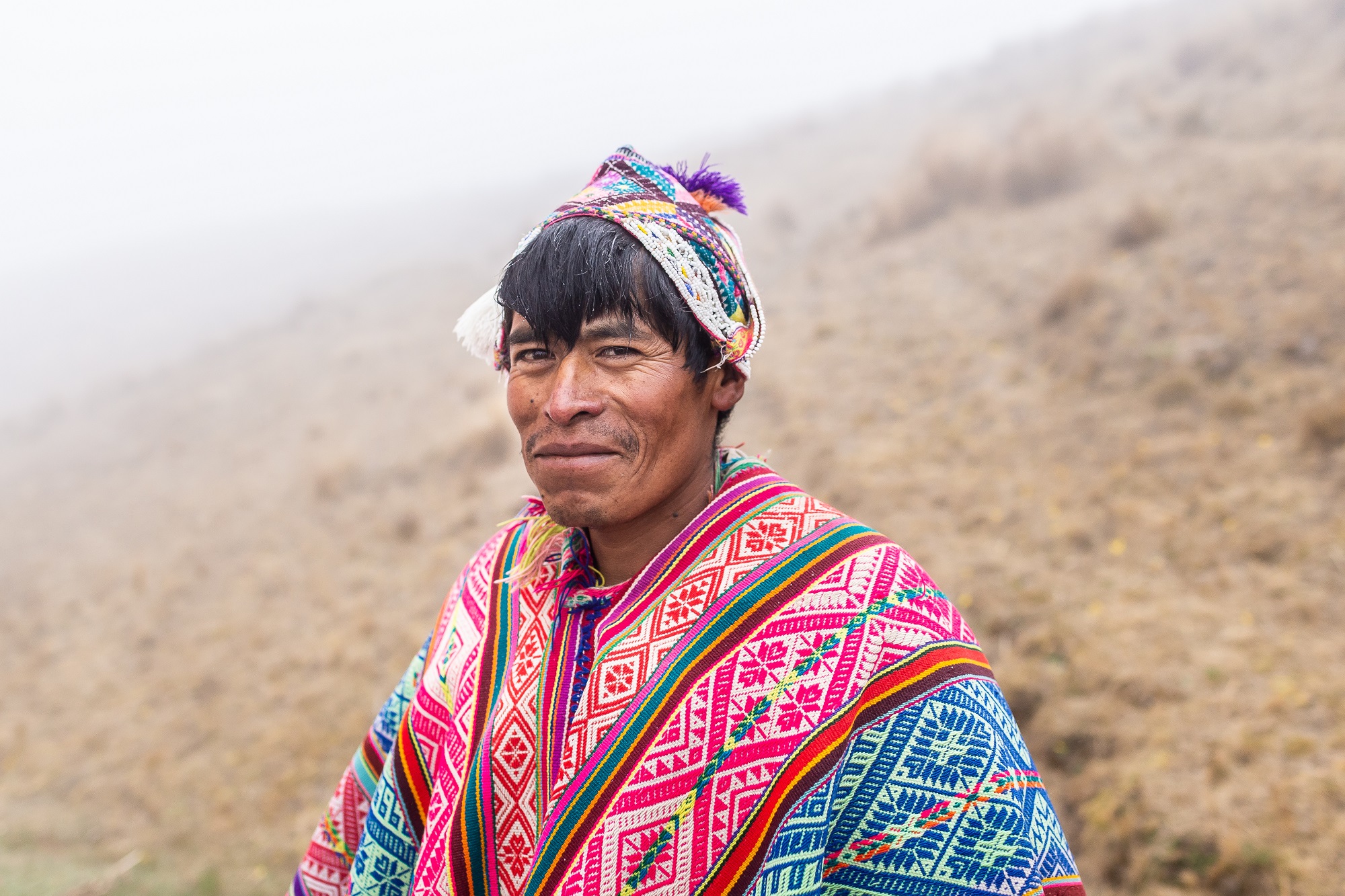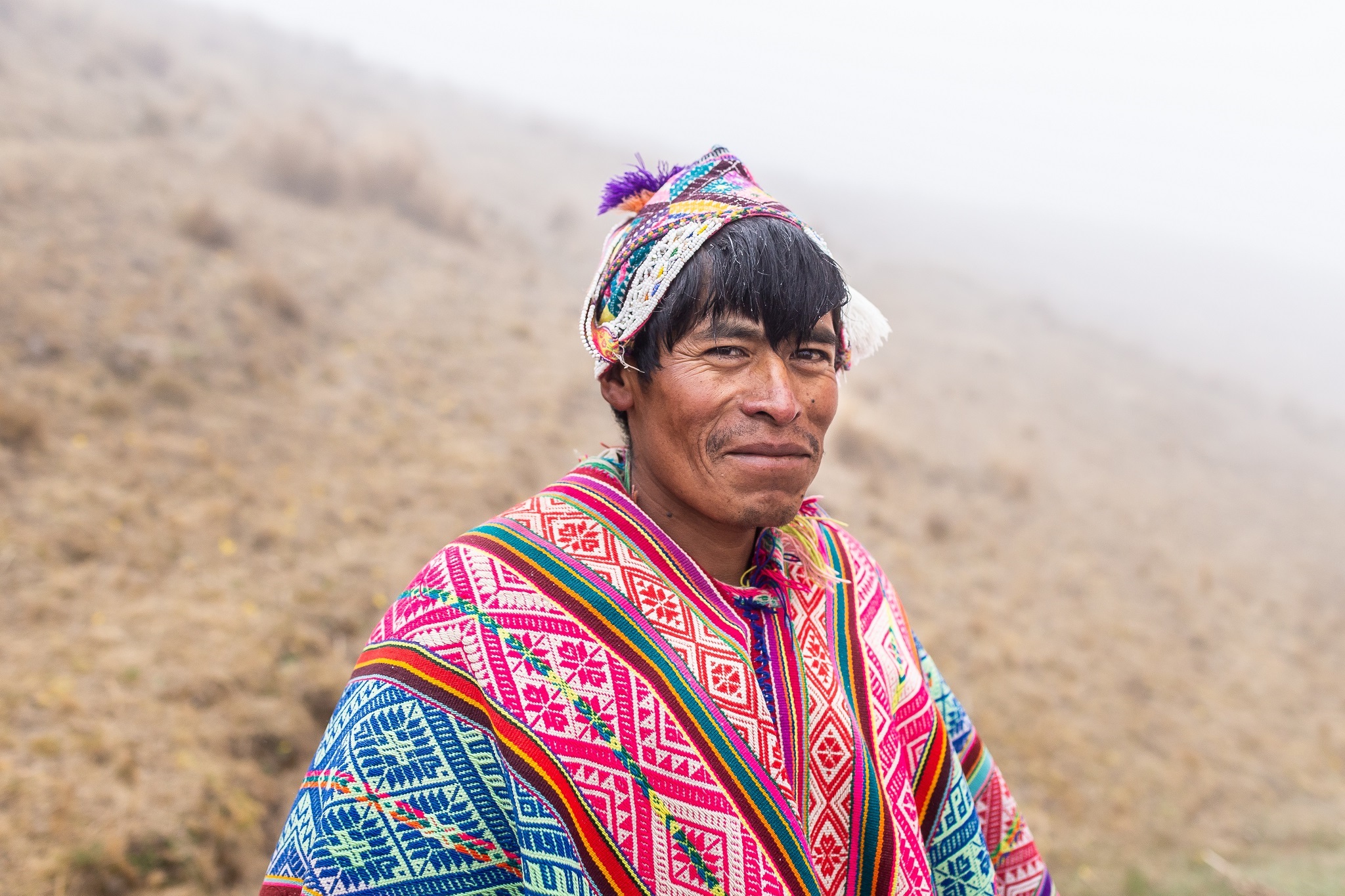
Alterfin & Rikolto: "We need to revive people’s faith in development cooperation”Unbelievable but true: what 30 years of partnership really delivers
Alterfin & Rikolto: "We need to revive people’s faith in development cooperation”Unbelievable but true: what 30 years of partnership really delivers
Thirty years ago, Rikolto helped found Alterfin, responding to the huge lack of financing for small-scale farms. And today? Alterfin’s model remains (unfortunately) nearly unique in the financial world, says Caterina Giordano, Chief Impact Officer at Alterfin. At the same time, Chris Claes, Director of Rikolto, sees that a clear shift in mentality has taken place in agriculture and food.
In this joint interview, held on the occasion of the collaborative campaign between Alterfin and Rikolto, they share both their concerns and reasons for hope in these challenging times.
Rikolto is one of Alterfin’s founders. Why did you believe in this new financing model right from the start?
C.C.: On the ground, we saw that the farmers we supported needed access to finance in order to grow and access markets. But the banks just weren’t responding. There was a real need for tailored financing, and Alterfin offered a solution.
C.G.: Rikolto is still part of our Board of Directors today. I’d like to take this opportunity to thank Chris: he served on the board for ten years, and his expertise in agriculture was invaluable.
What are the main similarities between Alterfin and Rikolto? And in what ways do you differ or complement each other?
C.C.: We work as an NGO. We support farmer organisations so they can professionalise and become part of agricultural value chains. But at a certain point, we reach the limits of what we can do. That’s when we need players like Alterfin.
C.G.: What strikes me is that even 30 years after Alterfin’s founding, our organisations are still so well aligned in terms of values and goals.
Rikolto works on structuring value chains and creating fair markets, into which organisations like our partners can then integrate. And in fact, we also share a number of common partners.
What do you value most in each other and in your collaboration?
C.G.: Rikolto has brought us a lot in terms of impact evaluation. Very often, these evaluations are set aside because they are perceived as too complex, too academic, or too resource-intensive. But thanks to Rikolto’s support, we found a tool that is both ambitious and aligned with our vision: FarmVoices. It allows us to collect direct testimonials from those supported by our partners. It’s much more than a reporting tool: it’s a real lever to guide our work in the field.
I also appreciate the role that Rikolto plays in our governance and in the exchange of knowledge between our organisations.
C.C.: I’ve seen how Alterfin has continued to professionalise, and how "impact" has become even more central to its operations. That’s not easy - believe me, we know.
Alterfin also stands out for its clear and transparent approach when it comes to its offering, selection criteria, and partner requirements.
And let’s not forget that together, we also co-founded Kampani - a fund for sustainable family farming that aligns beautifully with Alterfin’s work.
.jpg)
Innovation is important to Rikolto. Can you give some examples you’re particularly proud of?
C.C.: Innovation is in our DNA, and the sector recognises that. One example is our work within the Living Income Model. We didn’t invent the concept of a living income, but we are breaking new ground by putting it into practice together with partners like Colruyt, Puratos and Lidl.
These companies commit to paying higher premiums so that producers can earn a living income - sometimes even higher than fair trade prices. At the same time, the farmers involved receive support to strengthen their resilience - for example through income diversification, agroforestry, or improving productivity.
It’s important to understand that the Living Income Model is not just about pricing - it also requires long-term relationships, pre-financing, and sharing the risks. That’s exactly why the model only works when all links in the chain genuinely take a seat at the table.
In Belgium, we developed a model to offer healthy and sustainable meals in a network of Flemish schools. We did this in collaboration with caterers, schools, and local authorities. Our goal is always the same: not just to encourage others to change, but to develop and implement economic models that actually work.
C.G.: That’s something I really admire about Rikolto: you’re always working on new projects - and they’re never just niche initiatives. You manage to bring large players on board, even those who didn’t necessarily share your vision from the start.
And what about Alterfin, what role does innovation play there?
C.G.: Innovation is not an end in itself at Alterfin, even though we do encourage our partners to modernise their operations.
But what’s most striking is that even though Alterfin has been around for 30 years, people still see our model as innovative.
Impact investing, a cooperative model, support for sustainable agriculture... None of that is new, strictly speaking. Yet there are still very few players doing it. Even today, it remains incredibly difficult to secure financing for agricultural projects.
C.C.: What I find especially innovative about Alterfin is that you've managed to develop a working business model that focuses on financing agriculture—something very few others have succeeded in doing.
How have you seen mindsets evolve over the past 30 years?
C.G.: Honestly, not much has changed in the world of finance. Yes, there are more impact financiers, but overall, finance is only becoming more complex and remains disconnected from people and the real economy.
We need more focus on people’s well-being and the planet - and more transparency too.
In short, there’s still a lot of work to be done. That’s why we share what we learn - to encourage others to do things differently.
C.C.: When we look at food value chains, we see both progress and setbacks. Food is a sensitive issue - it touches on culture, identity, and everyday habits. That makes it both personal and political.
In Europe, some countries have made strong progress in organic farming and plant-based food. But recently, we’ve been going backwards: environmental rules are being relaxed, both nationally and internationally.
I see hope on two levels:
- First, locally. More and more cities are taking the lead in food policy, and that often leads to interesting and inspiring results.
- Second, in the private sector. Large retailers have finally understood that they can help shape demand.
In the past, they’d say: “Fair trade products? There’s no demand.” Now they realise: If they create the supply, demand will follow.
Ironically, it’s now those big companies putting pressure on policymakers. They’ve made major internal efforts – set up sustainability teams, adapted procurement processes – and now they’re hitting a wall because of government policies pushing them backward.
.jpg)
The political climate is far from encouraging. Many organisations are feeling the impact of budget cuts. What does this mean for Alterfin and Rikolto?
C.C.: These are tough times, let’s not sugar-coat it. Three of our programmes funded by USAID have been stopped or never got off the ground. The phase-out of USAID will have serious consequences in the coming years. We rely heavily on multilateral subsidies, but their future is uncertain.
C.G.: On our side, we do not depend on subsidies, but the potential removal of the tax benefit linked to sustainable financing will likely affect us. And yet, this measure will bring virtually no gain to the State.
I hope - and firmly believe - that people will look beyond the tax benefit, because their money enables Alterfin to generate real value.
There’s also the indirect impact: the reduction in international aid weakens the context and the people we work with. That’s why we are convinced that now is precisely the time to do more.
How are you responding to this changing context?
C.C.: We’ll need to further diversify our income sources and build more partnerships with private funds, businesses, etc. And most of all: in this era of fatigue and distrust, we need to revive people's faith in development cooperation.
We need to show that it works – through positive stories and real-life testimonials. Like we’re doing in our joint campaign with Alterfin.
C.G.: Absolutely. We need to rebuild that sense of connection. Show how a donation or investment leads to tangible results. Remind people that solidarity is a win-win, an investment in a better world - and not just a way to ease your conscience.
People need hope and solutions. And that’s exactly what Alterfin, Rikolto and so many other organisations in Belgium are working to provide. That’s what we want to highlight in our campaign.
TestimonialS
FAQ title
FAQ description
Humundi, Rikolto & Alterfin Campaign
Join us
more news from alterfin
DIDN't find what you're looking for?
Read our FAQs or contact us.


.jpg)




